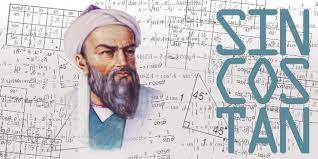
Muhammad bin Musa al-Khwarizmi was a Muslim from Persia who discovered the concept of zero. He’s often addressed as the father of algebra, a dedicated scientist who observed the changing world. His remarkable works helped unravel many mysteries of life and paved the way for numerous conveniences in the future.
Born in Khwarizm, Uzbekistan, around 194 H/780 AD, he was commonly referred to as ‘Khwarizmi.’ He passed away in Baghdad around 850. Apart from being a scientist, he was actively involved in education, teaching at the Baghdad School of Honor in Iraq. Al-Khwarizmi was acknowledged by many scientific figures as a brilliant scientist.
One of his major achievements was the discovery of algebra, which has now become a highly sought-after subject worldwide. Algebra is a branch of mathematics that explores into problem-solving using symbols as replacements for constants and variables. It has gained immense popularity globally and is a mandatory subject in schools.
He not only discovered algebra but also excelled in the science of astronomy, known as ‘Ilmu Falaq,’ studying the movements of celestial bodies. He authored the book ‘Zīj Al-Sindhind’ or the ‘astronomical tables,’ containing 116 tables with astrological, calendrical, and astronomical data alongside 37 symbols used in astronomical calendar calculations.
He is also credited with coining the term ‘algorithm,’ which was pivotal in the field of computer science. An algorithm refers to a set of logical steps systematically organized to solve problems, playing a crucial role in our daily lives and being foundational in computer programming.
Interestingly, Al-Khwarizmi was also an expert in the study of the Earth. His book, ‘Kitab surat al-Ardi,’ became fundamental in Arab Earth Science. Renowned geologist Abdul Fida mentioned the book as portraying the inhabited parts of the Earth through comprehensive maps. CA Nallino, who translated Al-Khwarizmi’s writings into Latin, claimed that no one in Europe could match his level of contribution.
His life and works symbolize the golden era of Muslim scientific knowledge, showcasing the significant influence of Islamic civilization on the advancement of mathematics and science globally.



